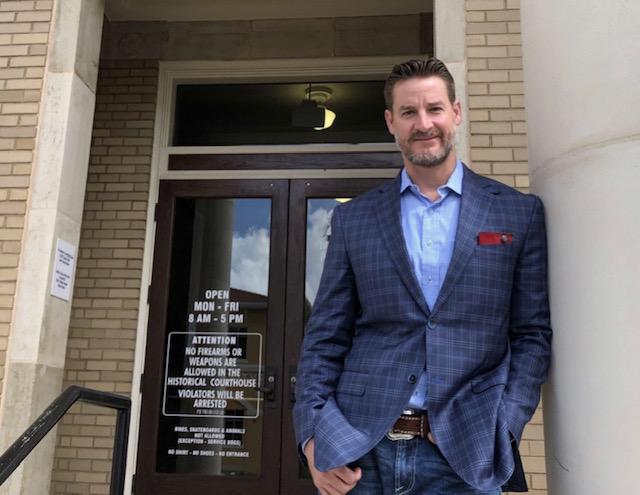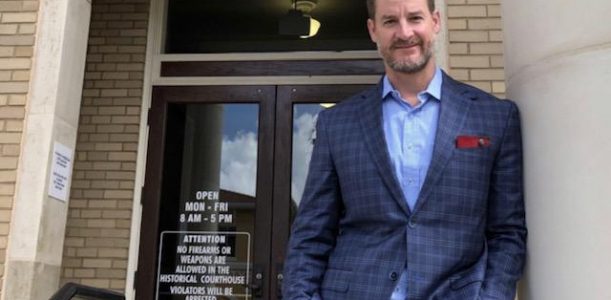Cox: Steube’s marijuana proposal is a half measure
By Billy Cox
September 13, 2019
U.S. Rep. Greg Steube’s bill to make marijuana a Schedule III drug is better than nothing, but not by much
SARASOTA — A bill filed Thursday by U.S. Rep. Greg Steube to scratch marijuana off the federally prohibited Schedule I list may have fulfilled a vow he made in May, but the proposed half-measure leaves him at odds with the nation’s oldest veterans service organization, as well as countless veterans advocating for full legalization.
Considering how more than 3 million Americans are now estimated to be legally accessing medical marijuana across 33 states and the District of Columbia, taking the Schedule I cuffs off cannabis is low-hanging fruit for any Beltway pol who wants to look rational these days. By definition, drugs quarantined in the Schedule I category of the Controlled Substances Act “have no currently accepted medical use,” which is flagrantly obsolete.
But the Sarasota Republican’s bid to downgrade cannabis to Schedule III, to which the Drug Enforcement Administration assigns substances like Tylenol with Codeine and ketamine, underscores the sometimes arbitrary nature of ranking drugs.
“Schedule III? Worse than Klonopin? That’s absolutely ridiculous,” responded Janine Lutz, founder of a nonprofit veterans peer-support group called Lutz Buddy Up. “Klonopin is a black box drug that’s killed how many people? How many people have taken their lives with Klonopin?
“And nobody has ever died from a cannabis overdose. Nobody using cannabis has ever had injury to their internal organs like all these other drugs.”
A member of the benzodiazepine family often prescribed for anxiety, Klonopin was what her son Johnny — a Marine veteran who suffered from post-traumatic stress disorder induced in Afghanistan — used to take his life in 2013. Klonopin is in the less restrictive Schedule IV class of drugs. But in a Herald-Tribune project last year called “Warriors Rise Up,” Klonopin was vilified by a number of veterans for evoking suicidal tendencies.
Steube’s legislative move was triggered at least in part by the full-blown suicide epidemic now claiming the lives of 20.6 veterans and active-duty personnel a day.
“By rescheduling marijuana from a Schedule I controlled substance to a Schedule III controlled substance, the opportunities for research and study are drastically expanded,” Steube, an Army veteran, noted in a press release. “With this rescheduling, researchers can now access federal funds to research this substance and determine its medical value.”
The American Legion, claiming sufficient data is already in, voted in 2017 to support taking marijuana off the Controlled Substances list altogether. Some 92% of its members told pollsters they advocate continuing medical research. But 83% said they want federally-legal cannabis treatment now.
In fact, House Judiciary Committee Chair Rep. Jerrold Nadler, D-N.Y., and U.S. Sen. Kamala Harris, D-Calif., proposed in July what some long-time weed-watchers are calling the most comprehensive cannabis legislation in history. Called the Marijuana Opportunity Reinvestment and Expungement Act (MORE), the bill would strike marijuana from the Controlled Substances Act, where it has languished since 1970.
Venice physician and medical cannabis provider Dr. Barry Gordon gave qualified props to Steube’s effort. Shifting cannabis to Schedule III might make it eligible for insurance coverage, lead to more job protections and provide more medical options for veterans and active duty military members struggling with issues marijuana could mitigate. It also would allow doctors to legally prescribe marijuana for patients; as it stands, they can only recommend cannabis remedies.
“So I give Congressman Steube major positives for his advancement of the issue and what it might bring to the veteran community,” says Gordon, a member of Florida Department of Agriculture’s Medical Marijuana Advisory Committee. “He’s been fantastic that way.”
But Gordon says it’s not enough.
“Rescheduling is dangerous,” he says. “Rescheduling has the potential of sending it back to Big Pharma and making it a ‘drug’ again. Now, I wouldn’t expect this to happen, but the most draconian of those measures could lead to the reduction of the liberty of the states who’ve already figured it out for themselves.”
Confining cannabis to its controlled-substance status, Gordon says, “is a continuation of the entire issue of prohibition that’s typically based on a complete misunderstanding of the plant.”
He predicts pharmaceutical companies will eventually identify individual cannabinoids that can target specific ailments. But “while they’re taking 10 to 15 to 20 years to research it,” Gordon says, “as a cannabis provider, I don’t want them to limit the utilization of what I already know works by using the whole plant for its entourage effect. This is already helping people.”
Army veteran Jose Belen of Orlando says he’s had his fill of popping pills to cushion the effects of his PTSD, which followed him home from combat in Iraq.
“Schedule III is a step in the wrong direction,” says Belen, whose nonprofit Mission Zero attempts to network veterans with community service providers. “I applaud what (Steube’s) trying to do but he’s missing the mark.
“We’ve already seen the research, and we know what works. I talk to veterans every day who are getting these pills but are not even taking them because of the damage they do to us.”
Belen has a nightmare story about excruciating withdrawals from antidepressants venlafaxine and norepinephrine. Afterward, when he told his doctor he wanted to kick the other scripts he was on, she informed him there was a problem.
“She told me I should come in for observation because I would be subject to possible withdrawal seizures. I said wait a minute, I’m not epileptic, I’ve never had a seizure, what are you talking about?
“She says, well, this medication we have you on is actually used to treat epilepsy and seizures, but it’s had such positive results with mood stabilization for depression,” he says. “On top of that, she tells me there’s the rash that lamotrigine causes that can be fatal was well. That’s when I broke down because I basically said, ‘You’ve made me a prisoner in my own body.’”
Belen, who uses marijuana to settle his nerves, has weaned himself from 300 milligrams of lamotrigine to 50 mg. But just because he can purchase a medical card doesn’t mean everybody can.
“This guy from Tampa, older guy, Vietnam veteran, he contacts me through Mission Zero and he says, ‘I can’t take any more pills, physically, I can’t do it anymore,’” Belen recalls. “So I connected him with a doctor and he gets back to me and says he can’t afford it, the doctor wants $300. So he’s been hung out to dry because he cannot afford to follow the legal process.
“How is this fair?”
In an email Friday, Steube wrote that additional research might “show there is an argument for rescheduling to Schedule IV, and we can consider additional legislation. … We need to know more about the effects of marijuana before going in the direction of the MORE Act, while also respecting states’ rights, and protecting citizens who reside in states where it is medically attainable.”
It’s only been 49 years since President Nixon named marijuana as a controlled substance. What’s another decade or so?
Retrieved from: https://www.heraldtribune.com/news/20190913/cox-steubes-marijuana-proposal-is-half-measure



